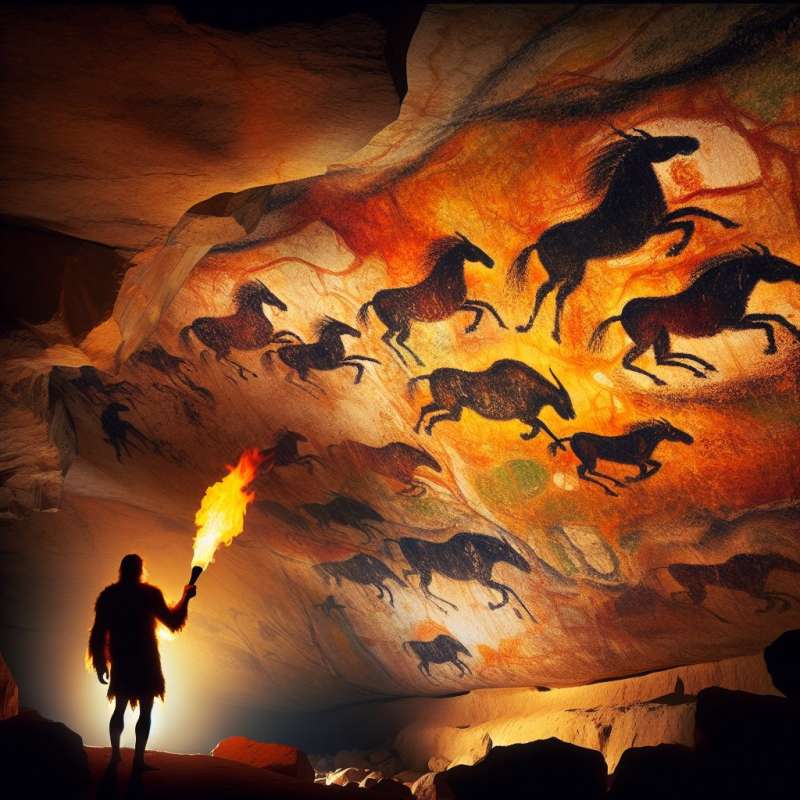
Human Ancestors' Evolution
Early hominins adapted bipedalism, freeing their hands for tool use. This evolution sparked brain growth, enabling complex social interactions and better hunting and gathering techniques, significantly shaping human societies.
Stone Tools Revolution
Approximately 2.6 million years ago, the Oldowan tools became the first known complex stone tools. Their creation marked the beginning of the Paleolithic era, leading to improved hunting and processing of plant foods.
Control of Fire
Evidence suggests hominins began using fire about 1 million years ago. Mastery of fire led to cooked food, which was easier to digest, thereby supporting brain expansion and social gatherings around hearths.
Prehistoric Art Emergence
Cave paintings, such as those in Chauvet, France, date back about 32,000 years. This art provides insight into the spiritual life and beliefs of hunter-gatherer societies, depicting animals and hunting scenes.
Agricultural Transition
The shift from hunting and gathering to agriculture began around 10,000 years ago. This Neolithic Revolution drastically changed human societies, leading to permanent settlements and the rise of civilizations.
Megafauna Extinction
Many large animals, or megafauna, went extinct as human hunting capabilities increased. By the end of the Pleistocene, over 178 genera of large mammals had disappeared, altering ecosystems worldwide.
Gender Roles in Gatherers
In hunter-gatherer societies, gender roles were often fluid, but typically men hunted and women gathered. This division of labor was not strictly enforced and varied among different groups, illustrating a dynamic social structure.Hominins and Sea Travel
Early hominins may have crossed seas using rafts 100,000 years ago, challenging our understanding of prehistoric navigation and migration.
What evolution sparked brain growth?
Control of fire
Bipedalism and tool use
Agricultural practices
Company